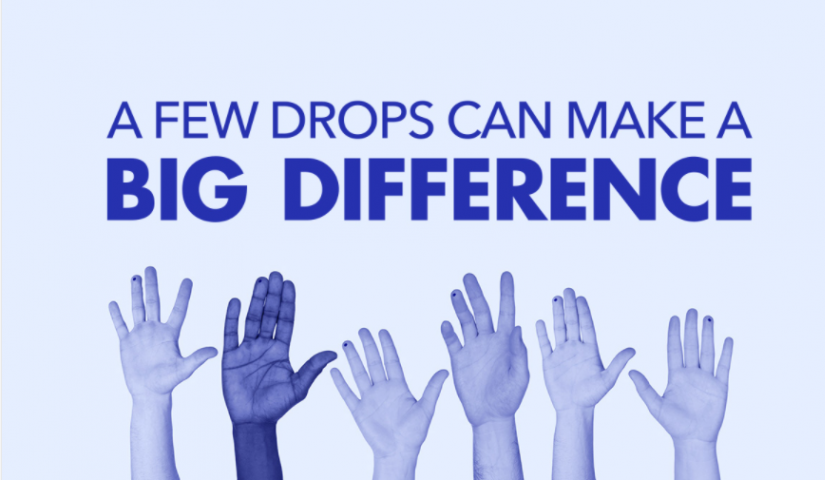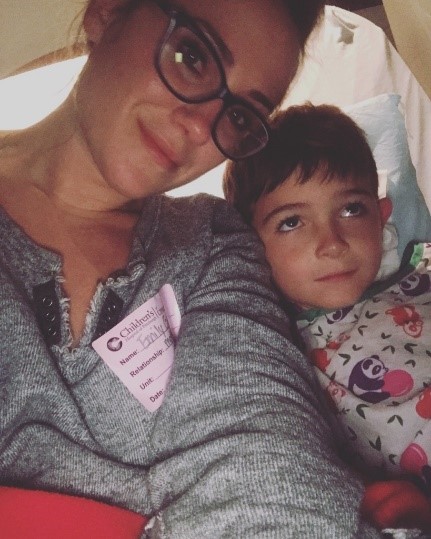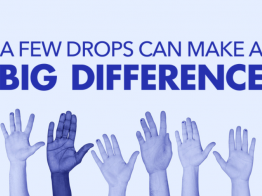
Meet Emily Goff - Part 2: Emily’s screening sample gets tested at TrialNet’s research lab

In part 1, we shared how 37-year-old Emily Goff was screened for her personal risk of type 1 diabetes (T1D) in her son’s room at Children’s Hospital of Pittsburgh. Luka, who was 8 years old at the time, had just been diagnosed with T1D and was recovering from a serious condition called diabetes ketoacidosis (DKA).
When Emily learned about TrialNet screening, she had her blood sample taken right there on the spot. The sample was sent to TrialNet’s central laboratory at the University of Florida, Gainesville. A portion of the same sample was also sent to TrialNet’s laboratory at the University of Colorado, Denver, to test for autoantibodies.
While Emily’s screening sample was being tested in the lab, she was busy adjusting to Luka’s T1D diagnosis.
“Children’s Hospital of Pittsburgh provides incredible support,” she explains. “They give everyone newly diagnosed with T1D three days of education in the hospital and send you home with lots of reading material. After we went home, we called in to talk with a diabetes nurse every morning for the first week or so.”
Emily says it was extremely hard adjusting in the beginning. “I spent hours every day calculating carbohydrates, meal planning and prepping, and looking up nutritional information—second guessing myself. And that was just the daytime! Nighttime was a whole other beast. It’s still challenging in some ways, although it helps now that we have the CGM [continuous glucose monitor] and a couple years under our belts.”
Because Emily was so focused on Luka and his new routine, she says she didn’t really worry about her screening results, but she did wonder what they would mean for her.
To see what Emily’s test reveals and what happens next, be sure to watch for part 3 next week. Meanwhile, we hope you’ll share this story with your family and friends!
DID YOU KNOW:
What happens to your test sample at TrialNet's lab?
All test samples from TrialNet screening and clinical studies are sent to specialized T1D research laboratories in the U.S. This ensures each sample is processed in a consistent way, meeting strict requirements for scientific research.
Screening samples are first tested for at least two diabetes-related autoantibodies at University of Florida. If the first test finds at least one autoantibody, we test the same sample for additional autoantibodies—for up to a total of five—at the Barbara Davis Center in Denver, Colorado. While the process takes a while (typically 4-6 weeks), these are essential steps to ensuring you receive the most accurate results.What are autoantibodies?
T1D autoantibodies are proteins that mark insulin producing beta cells for destruction. They are a useful tool for identifying people at risk of developing T1D, as they are easily identified in the blood.
This is part 2 of a 4-part series. If you subscribe to TrialNet's newsletter, you'll get a weekly email for the next 2 weeks. If someone forwarded this article to you, be sure to subscribe here.
A few drops can make a big difference!
TrialNet T1D risk screening looks for type 1 diabetes years before it appears. Know you or your child’s risk for T1D with a free blood test delivered to your door.
Sign Up
Answer a few questions. Free TrialNet screening kits are sent directly to you and can be done from the safety of your home.
Stick It
Each kit included everything you need. All it take is a few drops using a finger-stick and provide collection tube.
Ship It
Send your samples back for free using FedEx contactless at home pick up. Get your results in 4-6 weeks.
The future without T1D begins with you!





